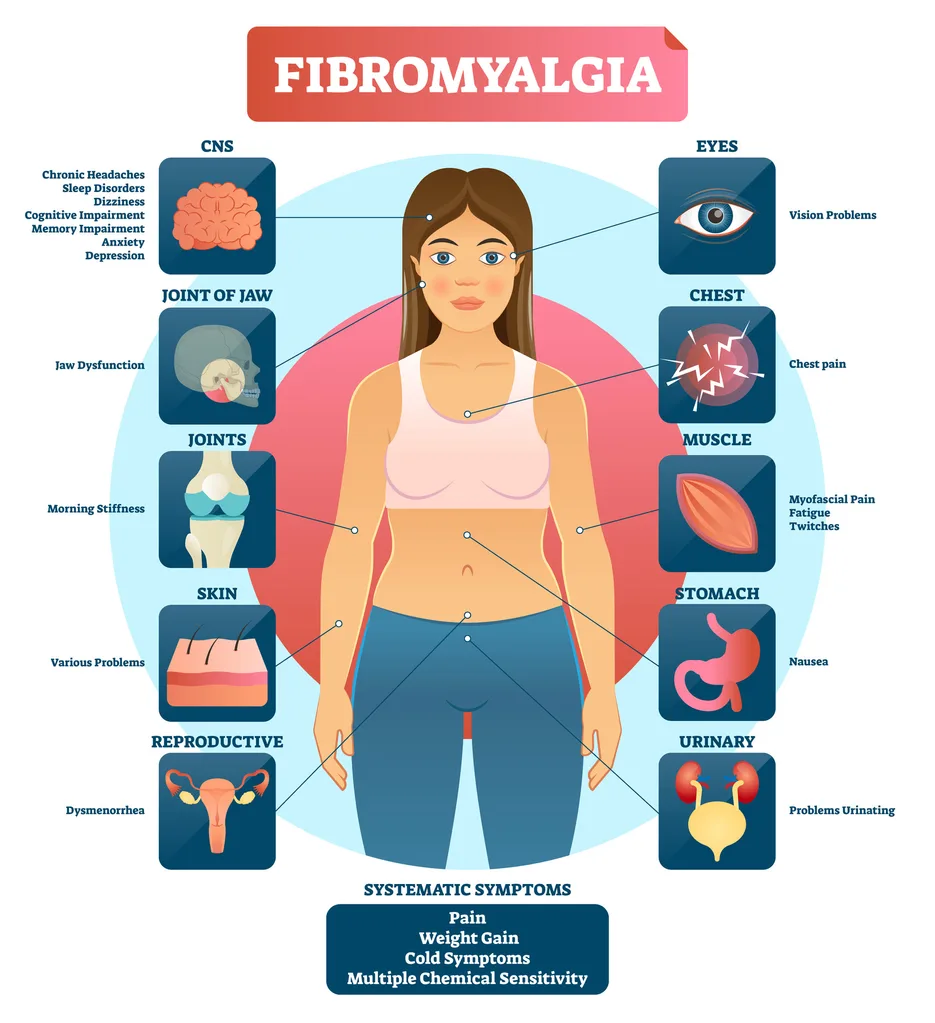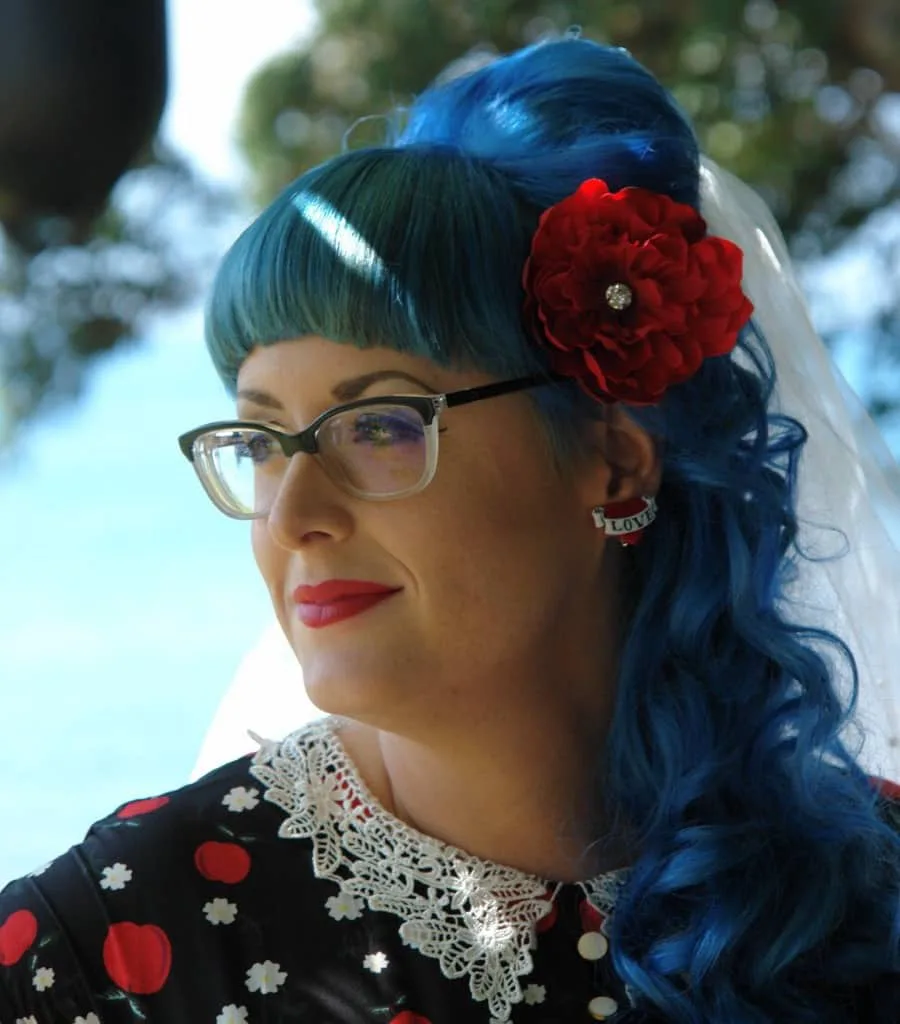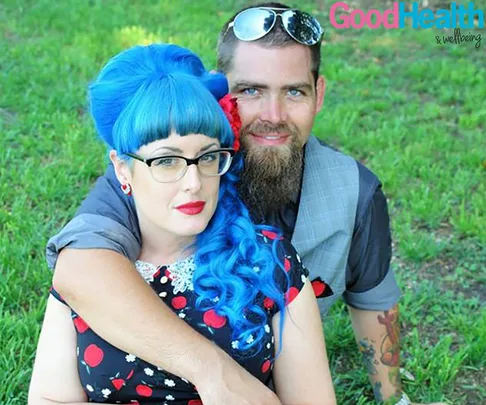You might see Liza Young outside the supermarket, holding a bag of dinner ingredients with two energetic young kids in tow.
You’ll notice her bright blue hair and vibrant vintage clothing, but what you won’t see is her agony.
For most of her life, Liza has lived with chronic widespread pain, which at times makes a short walk from a shop to her car unbearable. But what’s worse, Liza will tell you, is that her suffering is invisible.
Ten years ago, Liza was diagnosed with fibromyalgia, a condition that affects the nervous system and causes chronic muscle and joint pain. Despite one in 50 people having the illness – mostly women – she says it’s still rarely recognised in the health industry.
“I was always sick, tired and in pain while growing up. The doctors put it down to my kidneys and immune system because I have a few other illnesses and allergies,” says the 37-year-old mother of son Cian, eight, and daughter Aila, three, and wife of Ryan, 34, a water treatment specialist.
“I don’t remember ever feeling ‘normal’ but they never nailed anything down.”

When a specialist finally diagnosed Liza with fibromyalgia at 27, it was bittersweet.
“I had a name for it but since it wasn’t widely recognised at the time, people thought it was a made-up condition,” she says.
“They believed I was just lazy or mentally ill and didn’t want to admit it.”
The diagnosis didn’t provide a permanent solution for her symptoms either, which include heightened sensitivity to touch and pressure, difficulty concentrating because of ‘fibro fog’, numbness and pins and needles in her hands, depression and fatigue.
Other symptoms Liza can tick off the fibromyalgia symptom list are sleep disturbances, irritability, morning stiffness, headaches and an irritable bowel.
In the past decade, she’s endured a long and frustrating quest to trial every drug, pain clinic, cognitive therapy and diet available to her, but nothing has worked.
The best management for her illness is rest, but as a mother and manager of a vintage-style clothing store, downtime is a luxury.
“The hardest part is not being able to run around with my kids, who know Mummy’s always tired,” she says.
“They deserve a mother who can play with them and have fun, but most of the time I can’t because I just don’t have the stamina for it.
“Unless you’ve experienced chronic pain and the associated fatigue, you can’t possibly understand. I’ve been on everything from codeine to methadone and gabapentin to try to help the pain, but there’s nothing more they can do.”
Liza’s entitled to a disability parking permit, but she doesn’t use it.
“I dread the accusations that there’s nothing wrong with me and people saying, ‘You don’t look disabled,'” she says.
“I could be living in a wheelchair, which would make things easier, or be on drugs that numb the pain but turn me into a zombie.”
Liza credits the unwavering support of Ryan, who she married last year, for helping to keep home life as normal as possible.
“My husband’s a treasure and sees how strong I am, and does everything he can to help. I also have family who get the kids to kindy and school, which I’m super grateful for.”

Liza wants people to understand that her condition is just as valid as any other struggle.
Liza admits she’s succumbed to depression because of it all and says, “It’s exhausting trying to appear normal and it feels like I’m not living to my potential, which is devastating. It makes you want to just pack it all in sometimes.”
But she looks at the bigger picture to stay grounded, like remembering she’s made it to adulthood and bought her first home. She’s also had a lovely wedding, adopted a couple of rescue dogs and survived two dangerous pregnancies.
On top of that, she’s still got her wit.
“I tried epidurals with both my children and they had no effect, and I get tattooed and feel nothing, but holding a cup to my mouth can be agony,” she says.
“That’s how weird my nervous system is. It’s a storm of faulty up in here!”
For fibromyalgia to become more widely recognised, Liza wants others suffering from the illness to speak up, and for people to understand that her condition is just as valid as any other struggle.
“There are lots of us out there and we’re not lazy or weak,” she says.
“We’re some of the toughest people you’ll know.”




